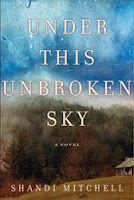ISBN: 978-1-4602-4413-5 Hardcover
ISBN: 978-1-4602-4414-2 Paperback
ISBN: 978-1-4602-4415-9 eBook
264 pages
Review by Natalia Baziuk
Orphanage 41, an account of a young man's search for his true mother, engages the reader with a quickly developing plot of corruption, dishonesty, and notably trafficking of babies. Along with this, the author also deals with prostitution, how women are often victimized, but most importantly, how societal values contribute to their continued marginalization.
Mykola Yashan is introduced as a third year university student of Ukrainian-Canadian descent, an only child of a scholar and notable Ukrainian historian, who was well respected in academic circles of the diaspora, but also internationally.
His somewhat normal life comes to an abrupt end, when both parents are killed instantly in a motor vehicle accident. Losing both parents – an aloof and antagonistic father, and a cherished and supportive mother – leaves Mykola emotionally destroyed. The shock only continues to escalate when he discovers documents that show he was an adoptee from an orphanage in Ukraine. Of course, this provides a greater depth of understanding as to the strained relationship with his father, but at the same time creates a curiosity and desire to find out about his real mother. Mykola decides to visit Ukraine, after finding the name of the orphanage and its director, Natalka Matlinsky. Against the advice of his godmother Sonia, what starts off as a mere fact finding mission about his supposedly dead biological mother, turns into a dangerous search for his true mother, her family, and in the end, an evolutionary process of self-discovery, along with a sub-plot that exposes the evil and corrupt Matlinsky, who trades in babies for self-gain.
Upon his arrival in Lviv, Mykola meets a diverse cast of characters, who all reflect and exemplify in some way the heartbreak and human resilience, as well as the best and worst traits often cultivated by the former communist system. From the kindly cab driver (Alex) and simple-minded caretaker (Petro) of the orphanage, to the corrupt village priest negotiating moral dilemmas with only self-preservation in mind, and slimy, lawless bureaucrats, each person Mykola meets is painted with realism, despite being a fictional novel. Malarek uses these individuals to demonstrate the often impossible moral choices that are forced upon people as they attempt to survive in a flood of poverty, corruption and political instability.
Mykola's whirlwind journey takes him from the orphanage, where he is able to determine that his mother is still alive, to the village where her family resides. Upon arrival in the village, Mykola realizes after asking questions of the family, that no answers will be forthcoming, but instead his interest is met with great anger. The mystery deepens, but the village priest does at least disclose the whereabouts of Mykola's mother, Kateryna. He travels to find her, and discovers that she is a town prostitute, controlled by her pimp Yuri. For Mykola this is a rude awakening, a reality he was not prepared for, but one that he must now come to terms with. Her story certainly leaves Mykola in a quandary, as he realizes that she did not choose this life, nor did she willingly give up her son for adoption. Village and societal values left Kateryna with few options, especially since no one, including family or friends, wanted to confront the true culprit – the sister of the priest. Mykola decides that he needs to get his mother away from this life but unfortunately, before he succeeds in accomplishing this, she is murdered with Matlinsky being the likely instigator of this murder.
Mykola manages to obtain the necessary documentation to expose Matlinsky and her corrupt baby adoption business. As he returns home to Canada, he meets his biological father and Sister Eugenia, the nun who helped to rescue his mother Kateryna from prostitution on the streets of Italy.
At the end of the book, we see a wiser and more mature Mykola – a young man who has to deal with a double life story and in the process transcends enormous personal pain, in order to improve and benefit the lives of others. Somehow, he must find the middle road – the answer – which will allow him to honour his biological mother for the hardships she endured, but at the same time to show his gratitude and respect to his adoptive mother. Sister Eugenia, whom he met in Italy, helped him deal with his own feelings of shame, when she explained that many women are prostituted and forced into this life. According to Sister Eugenia, silence and indifference result in a form of complicity. Mykola takes this message to heart, and the result of this is Kateryna's House in Ukraine, a rehabilitation home for prostituted women, which he founded as a tribute to both his mothers.
Needless to say, this novel is brilliantly written, fast-paced, well-plotted, with a cast of characters that clearly represents post-Soviet society as well as the Canadian Ukrainian diaspora. Victor Malarek, the author of this poignant novel, is a well-respected investigative journalist. He has written widely about trafficking of women and speaks frankly of the impact of institutionalization upon his own childhood. As a result of this unfortunate set of circumstances, he, more than most, understands how powerful the quest for identity is, and its resultant motivational force. Mykola's journey is not just an understanding of his past, but a search for meaning, which he, in the end, finds.
 |
| Victor Malarek shared his perspectives on human trafficking, institutionalization and investigative journalism among other topics with Rozmova Book Club members. |















